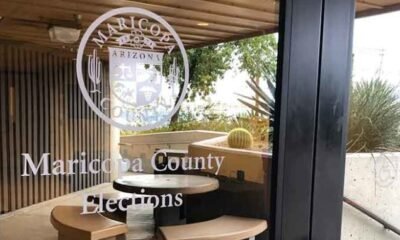Business
Private Equity Hooks Disability Services, Pushing Back Against State Oversight

Private equity firms are increasingly acquiring group homes and services for individuals with disabilities, raising concerns among advocates and regulators nationwide. A recent report from the Private Equity Stakeholder Project highlights troubling incidents of abuse and neglect involving residents under private equity-owned providers.
Eileen O’Grady, the report’s author, emphasized that private equity firms often prioritize short-term profits, which can lead to significant cost-cutting measures detrimental to care quality. “Those cuts can have really harmful impacts on people’s lives,” she noted.
In late 2023, Florida’s state regulators targeted NeuroRestorative, part of the Sevita company, for failing to safeguard clients from physical abuse. Although the state ultimately settled for a $13,000 fine rather than license revocation, this incident reflects broader, ongoing concerns about patient safety within Sevita’s multiple affiliates across various states.
Regulatory bodies have documented numerous instances of harm under Sevita’s management. A U.S. Senate committee previously initiated an investigation into the company following reports of patient abuse in Iowa and Oregon. U.S. Senator Chuck Grassley, highlighting the gravity of taxpayer-funded care, asserted that such entities should prioritize quality improvements.
In a response to inquiries, Sevita outlined efforts to enhance its services since being acquired in 2019, emphasizing investments in facilities and staff training.
Despite these assurances, the disability care sector remains attractive to private equity. Between 2013 and 2023, over 1,000 disability and elder care providers have been acquired, often targeting small nonprofits and community businesses to form larger, profit-driven corporations.
Sevita operates in 40 states under various names, with most revenue derived from Medicaid financing. Its ownership structure includes significant private equity firms, which have reportedly profited substantially since their investment.
Incidents of neglect are concerning. For instance, a 2022 Utah inspection revealed ongoing failures in safeguarding residents at a NeuroRestorative facility. Similar problems have been reported across multiple states, where Sevita has faced fines and sanctions for various violations.
Further complicating the issue, the regulatory landscape can be fragmented. State agencies may enforce differing standards for the same company operating under multiple brand names, which complicates accountability efforts and oversight.
Activists argue that state regulators lack the necessary resources to effectively monitor large, national entities, leaving potential victims vulnerable. The landscape involves challenges such as independent oversight, particularly when firms operate across state lines.
In response to these challenges, some states are beginning to enact new legislation aimed at tightening regulatory control over private equity in healthcare. With recent incidents highlighting the need for more stringent oversight, there is a growing consensus among lawmakers to address the issues posed by private equity involvement in disability services.

















